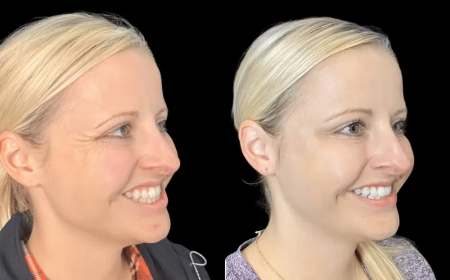Adapting to Different Clinical Instructor Expectations Efficiently
Adapting to Different Clinical Instructor Expectations Efficiently

Adapting to Different Clinical Instructor Expectations Efficiently
Introduction
One universal truth in nursing BSN Class Help school is that no two clinical instructors are alike. Each brings unique professional experiences, teaching philosophies, and expectations to clinical rotations. Some emphasize strict documentation, others prioritize bedside communication, while some focus on rapid assessment and task efficiency. For students, adapting to these varying expectations week after week can feel overwhelming, especially when juggling skills check-offs, care plans, and academic assignments simultaneously. However, learning to navigate and adapt to different clinical instructors efficiently is an essential skill that builds flexibility, professionalism, and readiness for the dynamic realities of nursing practice. This article explores why instructor expectations differ, the challenges students face, and strategic approaches to thrive under any clinical instructors guidance.
Why Do Clinical Instructor Expectations Differ?
- Diverse Professional Backgrounds
Instructors come from various specialtiesICU, med-surg, pediatrics, emergency, community healthshaping what they prioritize in students.
- Personal Teaching Styles
Some instructors are nurturing and focus on building confidence gradually, while others adopt a tough-love approach, pushing students intensively to prepare for real-world demands.
- Institutional and Course Objectives
Expectations vary depending on course goals. For example, first-semester clinicals may focus on fundamental skills and professionalism, while final semester instructors assess critical thinking, delegation, and leadership.
- Patient Safety and Unit Culture
Instructors adapt expectations based on patient acuity, facility policies, and unit workflow to ensure safe and efficient care.
Common Challenges Nursing Students Face
|
Challenge |
Impact on Students |
|
Confusion about expectations |
Leads to mistakes, anxiety, or underperformance. |
|
Fear of strict instructors |
Causes nervousness and impairs skill demonstration. |
|
Adjusting to conflicting feedback |
Creates frustration and self-doubt. |
|
Trying to please every instructor without understanding core principles |
Results in burnout and a loss of authentic learning. |
Benefits of Learning to Adapt Efficiently
- Develops Professional Flexibility: Nursing practice involves adapting to charge nurses, preceptors, and team leaders with varying expectations.
- Enhances Clinical Performance: Understanding what each instructor values helps you prioritize tasks and demonstrate competence effectively.
- Builds Resilience and Confidence: Facing diverse teaching styles equips you to thrive under any supervision.
- Improves Patient Care: Quickly aligning with instructor priorities ensures safety and high-quality patient outcomes.
Strategies to Adapt to Different Instructor Expectations Efficiently
- Understand Expectations Early
At the start of each rotation:
- Ask instructors directly: What are your top expectations for students in this rotation?
- Review the course objectives they emphasize.
- Observe their feedback style with other students to anticipate their approach.
- Take Notes on Instructor Priorities
Keep a section in your clinical notebook for each instructors focus areas, such as:
- Specific assessment techniques they value
- Documentation style and detail required
- Patient interaction standards (e.g. bedside handoff thoroughness)
- Time management preferences (e.g. completing vitals by a certain time)
Refer to these notes before each nurs fpx 4015 assessment 2 clinical day to align your mindset.
- Adapt Communication Styles
If your instructor is direct and concise, provide succinct reports and clarifying questions. If they prefer detailed rationales, prepare to explain your thinking thoroughly for assessments and interventions.
- Embrace Feedback with Openness
Instead of internalizing criticism personally:
- View feedback as an opportunity to match instructor expectations.
- Ask follow-up questions for clarification: Can you show me how you would approach this differently?
- Avoid Comparing Instructors
Comparing instructors often leads to frustration. Each offers valuable perspectives, and learning to integrate various styles enriches your practice adaptability.
- Focus on Core Nursing Principles
Regardless of instructor preferences, certain fundamentals remain consistent:
- Patient safety and dignity
- Effective communication
- Accurate assessments and documentation
- Professionalism and accountability
Grounding your practice in these pillars ensures you meet essential expectations universally.
- Seek Peer Insights
Discuss instructors with peers who have rotated with them previously:
- What do they focus on?
- How do they prefer reports to be structured?
- Are there common mistakes students make with them?
This prepares you proactively.
- Reflect After Each Clinical Day
Spend 5-10 minutes reflecting:
- What did the instructor correct or praise today?
- What adjustments can I make for next time?
- How did their expectations differ from others Ive worked with?
Reflection accelerates adaptation and builds metacognitive skills crucial for professional growth.
- Avoid Over-Apologizing
While acknowledging mistakes is professional, excessive apologizing can undermine your confidence. Instead, state:
- Thank you for pointing that out. I will apply it moving forward.
This demonstrates receptiveness without self-deprecation.
- Maintain Professional Confidence
Remember, differing expectations do not imply incompetence on your part. View it as learning versatility in adapting to various healthcare professionalsa skill that will serve you in diverse practice environments.
Examples of Adapting to Varying Instructor Expectations
Scenario 1: Focus on Bedside Manner
Instructor A prioritizes therapeutic communication with patients.
Adaptation:
- Spend extra time engaging patients, assessing their concerns, and incorporating their preferences into care plans.
- Use open-ended questions and active listening during assessments.
Scenario 2: Emphasis on Time Management
Instructor B expects all morning assessments and documentation completed by 9 am.
Adaptation:
- Arrive early to review charts thoroughly.
- Organize assessment tools for efficiency.
- Prioritize patients with time-sensitive medications or treatments first.
Scenario 3: Priority on Detailed Documentation
Instructor C grades heavily on documentation clarity and completeness.
Adaptation:
- Review sample notes or templates they provide.
- Ask for mid-clinical feedback on documentation to correct errors proactively.
Scenario 4: Critical Thinking Emphasis
Instructor D focuses on pathophysiology and rationales for interventions.
Adaptation:
- Review underlying disease processes before clinical.
- Prepare to explain assessment findings, medication rationales, and care plan decisions thoroughly.
Managing Conflicting Feedback Between Instructors
Sometimes, you will receive conflicting advice on documentation styles, assessment order, or patient education approaches. To navigate:
- Clarify Expectations Within Each Rotation: Follow each instructors preferences while under their supervision to meet their grading criteria.
- Consult Clinical Course Objectives: Ensure you meet overarching course competencies despite stylistic differences.
- Integrate the Best Practices: Blend approaches from various instructors into your professional nursing identity over time.
Building Emotional Resilience Amid Varying Expectations
- Practice Mindful Detachment
Separate your worth from daily feedback. While performance is important, remember feedback is about skill refinement, not personal value.
- Maintain Self-Affirmations
Remind yourself:
- I am a student here to learn and grow.
- Different expectations build my versatility as a nurse.
- I can adapt while maintaining professional integrity.
- Seek Instructor Guidance on Improvement
Instructors appreciate students who demonstrate initiative. After a challenging shift, ask:
- What is one area you feel I should prioritize improving before our next clinical day?
This shows humility, commitment to growth, and professional maturity.
Long-Term Benefits of Efficient Adaptation
|
Benefit |
Impact |
|
Professional Versatility |
Prepares you to work under diverse preceptors and nurse leaders in future practice. |
|
Enhanced Clinical Confidence |
Reduces anxiety by equipping you with adjustment strategies for varying expectations. |
|
Stronger Performance Evaluations |
Instructors value students who align with their teaching while demonstrating independent thinking. |
|
Career Advancement Readiness |
Adaptability is a top leadership competency sought by employers in new graduate nurses. |
Student Testimonials: Adapting to Instructor Expectations
At first, I was frustrated by conflicting feedback. Eventually, I learned to view each instructor as a unique mentor shaping different parts of my nursing skills. BSN Junior
My clinical instructor was strict on time management. Though I felt overwhelmed, it prepared me for real shifts where prioritizing efficiently is crucial. BSN Sophomore
I kept notes on each instructors expectations. Reviewing them before clinical helped me feel more prepared and confident. BSN Senior
Final Thoughts
Adjusting to different clinical nurs fpx 4065 assessment 3 instructor expectations efficiently is a professional skill that will serve you far beyond nursing school. It builds the flexibility needed to thrive under diverse leaders, adapt to varied unit cultures, and provide safe, patient-centered care regardless of supervision style. By understanding instructor priorities early, taking proactive notes, aligning your communication style, and maintaining a grounded professional confidence, you transform potential frustration into a powerful growth opportunity. Remember, each instructor shapes your journey uniquely, helping you develop into a well-rounded, resilient, and adaptable nurse ready to excel in any clinical environment.


































